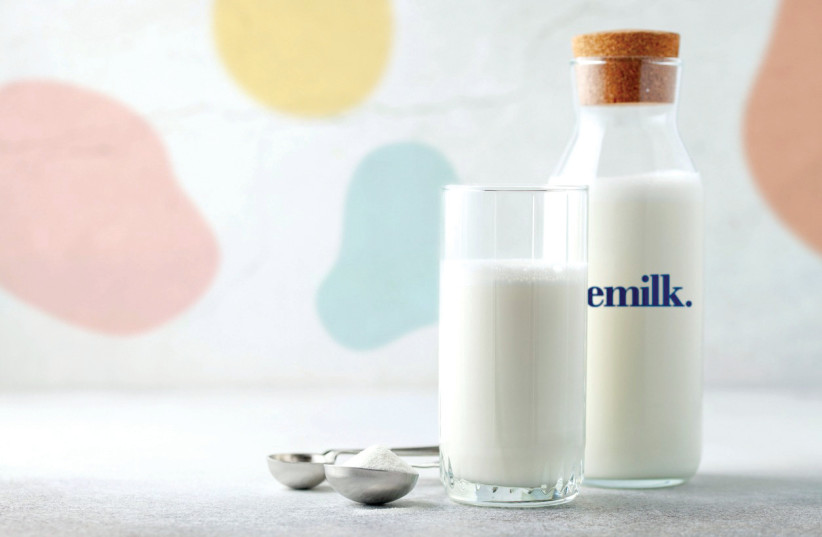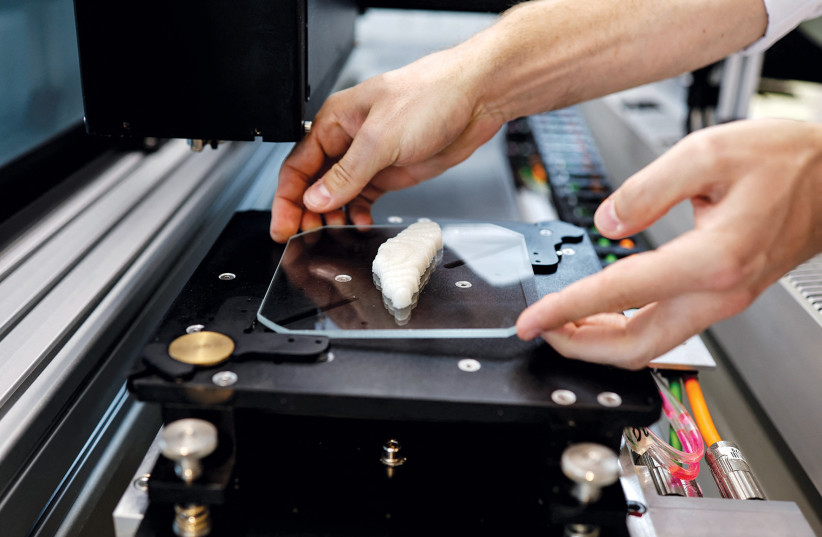The Israeli food tech community is emerging as a beacon of innovation in an era of escalating environmental sustainability and resource conservation concerns.
The statistics are alarming: According to the United Nations, the global food sector accounts for a staggering 30% of the world’s energy consumption and contributes to 25% of greenhouse gas emissions. Moreover, according to the World Food Program, one-third of all produced food goes to waste – that’s around 1.3 billion tons of food globally every year, the equivalent of 22 million Olympic size swimming pools.
In addition, food packaging constitutes half of the packaging materials used globally, and only a meager fraction, barely surpassing 15%, undergoes recycling procedures. The remainder finds its unfortunate destination in landfills, contributing to environmental pollution.
Experts say it will take visionary efforts to address the pressing challenges of efficient resource utilization and emissions reduction in the food industry and to pave the way for a more conscientious, healthy, and sustainable food future.
Israel aspires to play a pivotal role.

According to Startup Nation Central, the country has more than 250 start-ups in the food technology industry.
“The food tech industry is doing really well compared to other industries,” Fiona Magal, a partner at Cukierman & Co., which focuses on food tech and agriculture tech, tells The Jerusalem Report.
She says the market slowdown impacted Israel’s food tech industry the least of all other sectors. Food tech dropped 18% compared to cyber at 55%; the Internet of Things at 55%; and fintech at 56%.
“The food tech industry is stronger than ever and doing better than other sectors,” Magal says.
Part of the reason is that the food supply chain is so robust, from the planted seeds to the grains and agriculture that are harvested to the food that the customers consume – and everything in between and around that process, including food storage and transportation, she explains.
Israel is making moves regarding regulation and government funding, crucial steps to getting more sustainable food on people’s plates. An article published by the Hong Kong website Green Queen highlighted “the 10 most active governments across the globe that are helping to make cultivated meat a reality,” naming Israel No. 2 between Singapore at the top and the United States.
The Israel Innovation Authority (IIA) recently established a cultivated meat consortium of 14 companies and 10 universities – one of the largest in the world – committing to invest NIS 66 million (half from the government) over three years. The consortium, led by Tnuva, aims to develop new production methods to help Israel’s cultivated meat products penetrate international markets.
In addition, the government contributed some NIS 50 million to early-stage start-ups and infrastructure for the overall alternative protein industry. And IIA recently invested more than NIS 180 million in fermentation infrastructure.
And this is all against the backdrop of a soon-to-be national food tech program that the Ministry of Innovation, Science and Technology will spearhead.
‘The fat trickles down’
Israeli companies have already developed successful alternative proteins and other food tech products. For example, Remilk uses fermentation to reproduce proteins with no animals involved. The company says the milk tastes and has the same texture as cow’s milk.
In April, Israel granted Remilk the first regulatory approval to market and sell its milk products to consumers.
Israel’s Aleph Farms unveiled the world’s first cultivated thin steak in 2018. And this year, Meat. The End (MTE) debuted its first-in-world chickpea meat.
Company founder Dr. Yishai Mishor describes the product:
“The fat kind of trickles down. It takes about the same time to cook. And, in the end, when you eat it, what you are putting in your mouth is something that has the same texture as meat – the juiciness, the firmness you would expect when you bite into a real meat burger,” he says.
Mishor’s company also makes soy and pea burgers, sausages and chicken nuggets, combining protein and data science with food engineering by technologically innovating extrusion processes in the development of new ingredients. Using a very wide variety of protein sources and processing, the company is working to re-invent alternative protein ingredients that achieve the textures they should have. Most protein sources come as powders, isolates, and concentrates.
“Turning this into alternative meat is a huge deal; and as we see it, no one is playing in that field,” Mishor says.
‘There is a gap that needs to be filled’
On the agriculture tech side, BloomX has an AI-driven artificial pollination system. The company just closed an $8 million seed round of funding.
Company founder and CEO Thai Sade explains that more than 80% of crops require insect pollination. However, the bees cannot keep up.
“The honeybee population has been growing since the 1960s by around 81%,” Sade says. “But agriculture production has been growing by around 600%. So there is a gap that needs to be filled.”
The company’s technology mimics the buzz of the bumblebee. The technology uses mechanical arms mounted on an electric vehicle. It vibrates the stems of plants to release pollen grains on the flower’s stigma. The company’s predictive algorithm tells growers exactly when the best time is to pollinate based on environmental data and other factors.
Sade says the technology “empowers growers to effectively manage and attain control over the entire pollination process without exploiting bees.”
Today, the technology is focused on blueberry and avocado plants, increasing yield by 20% to 40%.
‘Food becomes like a medicine’
Exosomm, a biotech/food tech start-up, is developing nutritional solutions based on natural milk exosomes.
The company’s CEO and co-founder, Netta Granot, says that one in 10 people suffer from inflammatory chronic disease. Today, these people are treated with drugs that can have side effects. She believes that her nutrition will be able to help.
She explains that exosomes are nanoparticles in maternal milk – including cow’s milk – associated with immune-related activity.
“When we are breastfed as babies, the mother transfers these exosomes to the baby, boosting the baby’s immunity. Obviously, mother’s milk is not commercially available or scalable,” she says. “Our team found that exosomes also exist in cow’s and other mammal’s milk. Our technology extracts the exosomes from cow’s milk and creates a bioactive ingredient that can be added to food. Then that food becomes like a medicine that can treat inflammatory diseases.”
The company’s powder, a spin-off from Hadassah University Medical Center research, could be added to all kinds of foods, from yogurts to health bars. Recent research has shown that the product could provide as much as a 90% reduction in inflammation, equivalent to anti-inflammatory drugs’ results.
“The concept of food as medicine is growing and getting much more interesting,” Granot says. “People more and more understand that good and natural food has a lot of health benefits.”

‘Trustworthy and tasty’
The recent OECD Survey on Environmental Policies and Individual Behavior Change (EPIC) showed that while Israelis are more inclined than people in most countries to try food treated by technology, the majority are not.
“Customers need to trust,” Cukierman’s Magal says.
She says that Hollywood actors, other influencers, and famous chefs could play a role in positioning alternative proteins and other food technology at the forefront.
Natalie Portman invested in the French vegan bacon start-up LaVie. Robert Downey Jr. also backs a vegan bacon company, American-based Atlast Food. Gal Gadot is one of the founding partners of Goodles, which gives at least 1% of all the products it sells to organizations that address food insecurity.
“At the end of the day, people need to put this food in their mouths,” Magal says. “It needs good marketing, but it must also be trustworthy and tasty.” ■
